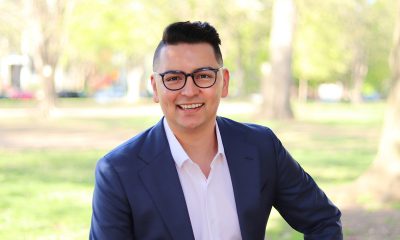Local
Capital Pride reiterates 2018 policy banning D.C. police from parade
Black Pride has no plans to ban officers
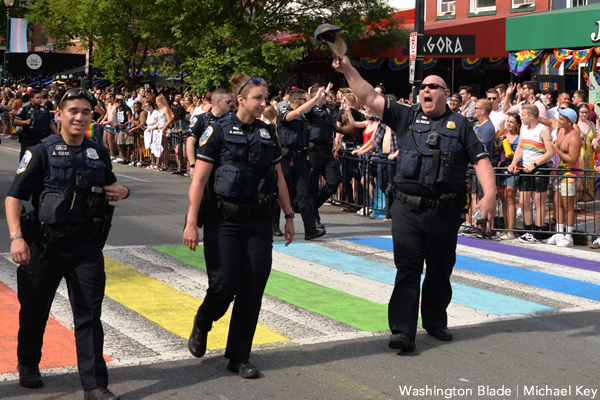
The Capital Pride Alliance, the group that organizes D.C.’s annual LGBTQ Pride events, says it adopted a policy in 2018 to ban uniformed D.C. police officers from marching in the Capital Pride Parade.
Some LGBTQ community members contacted by the Washington Blade, including D.C. Black Pride organizer Earl Fowlkes, have said they were unaware of the Capital Pride policy of not allowing police participation in the parade and other Capital Pride sponsored events.
Fowlkes, who serves as executive director of the D.C.-based Center for Black Equity, which supports Black Pride events throughout the country, said D.C. Black Pride has had police presence at some of its events over the past 30 years and has no plans to ban police from its activities.
Ryan Bos, the Capital Pride Alliance executive director, sent the Blade a statement he said Capital Pride posted on its website in June of 2020 formally announcing the police policy. The statement came five days after an earlier statement posted on the group’s website expressing strong solidarity with the Black Lives Matter movement.
“In 2018 the decision was made that MPD [D.C. Metropolitan Police Department] would not participate as a contingent in the Pride Parade, and has not since,” says the statement, which was posted on June 8, 2020. “Going forward, CPA will not permit any uniformed and armed police officers to march in the Pride Parade or participate in CPA-sanctioned events,” the statement continues.
“As required by the city government, MPD has jurisdiction to close and clear the streets,” the statement says. “The MPD will continue to manage street closures as outlined in permit requirements. When needed, CPA will hire private security as has been done previously.”
The statement concludes by saying Capital Pride Alliance was committed to having “further talks with its LGBTQ+ partners and other organizations and the city to address the on-going concerns that have been raised by the community.” It adds that Capital Pride Alliance “will take additional actions in the coming days and weeks.”
Although the statement did not say so directly, it was referring to the earlier statement discussing Capital Pride’s support for the nationwide protests in June 2020 over the murder of Minneapolis resident George Floyd at the hands of a police officer who was later convicted of second-degree murder and manslaughter for Floyd’s death.
“Pride this year comes on the heels of a global pandemic and a nation confronting the murder of George Floyd at the hands of Minneapolis police officers,” the earlier statement posted on June 3, 2020, says.
“This horrific tragedy, and the murders of Breonna Taylor, Tony McDade, and Ahmaud Abrery by police and white vigilantes, have created a nationwide uprising crying out for racial justice and the protection of Black life,” the statement says.
“As members of the Black and Brown communities have stood with the LGBTQ+ community, the Capital Pride Alliance stands in complete solidarity to unite against those disparities that impact communities of color,” says the statement. “We pledge that we will work together to find solutions and make the positive changes that are so desperately needed to end inequity, injustice, and violence against people of color.”
In prior years, uniformed members of the D.C. police LGBT Liaison Unit have marched as a contingent in the Capital Pride Parade. During some prior years going back to the 1990s, D.C. police chiefs have joined the parade in police vehicles or watched the parade while standing along the parade route.
D.C. police spokesperson Dustin Sternbeck did not respond to a request by the Blade for comment on the Capital Pride policy of banning uniformed police participation in Pride events.
Gay retired D.C. Police Lt. Brett Parson, who served as director of the department’s Special Liaison Branch, which oversees the LGBT Liaison Unit, declined to comment on the Capital Pride ban on D.C. police participation.
Some LGBTQ activists have expressed the view that D.C. police participation in Pride events, especially participation by high-level police officials, was a sign of the D.C. police department’s strong support for the LGBTQ community.
But other activists, including members of the local transgender community, have said police crackdowns on sex workers, including transgender female sex workers of color, have involved what they believe to be a misplacement of police priorities. The local transgender and sex worker advocacy group No Justice No Pride has long called on Capital Pride to ban police from participation in all Pride-related events.
In the years since Capital Pride adopted its police policy, other cities, including Seattle, Denver, and just last week New York City’s Pride organization adopted policies banning police participation in their Pride parades and other Pride events.
Bos of Capital Pride said that similar to last year, due to COVID restrictions in place earlier this year, the traditional D.C. Pride Parade and festival will not be held in June this year. Although D.C. Mayor Muriel Bowser earlier this month removed all restrictions on large outdoor events beginning June 11, Bos said Capital Pride did not have time to organize a parade and festival for June. He said a Capital Pride Parade and festival are under consideration for October of this year.
The Capital Pride website includes information about a number of smaller Pride events for June, both in-person and virtual events. Among them will be a caravan of cars and vehicles decorated with Pride displays scheduled to travel across the city on June 12 to view houses and businesses that will display Pride decorations on their buildings or in their front yards.
Fowlkes said D.C. Black Pride organizers also fully support the Black Lives Matter movement and have condemned the incidents of police abuse, including the George Floyd murder in Minneapolis. But he said Black Pride organizers see no reason for banning police participation, especially the LGBT police officers who regularly attend Black Pride events.
“We’ve never had a problem,” he said. “Our members have never voiced a problem in dealing with the police,” according to Fowlkes.
“We know a lot of queer police officers and I welcome their presence,” Fowlkes said. “As long as they behave, I welcome everyone’s presence. It’s open to everybody. I can’t see eliminating the police any more than if people come in an Army uniform.”
David Johns, executive director of the D.C.-based LGBTQ group National Black Justice Coalition, has taken a different position than that of Black Pride.
“The D.C. Capital Pride Alliance was right to ban uniformed police from participating in the Pride Parade when it made its decision back in 2018,” Johns told the Blade in a statement. “For too many members of the LGBTQ+ community, especially Black LGBTQ+ and same-gender loving people, the presences of armed, uniform police make us feel less safe,” he said.
“It is important that the D.C. Capital Pride Alliance recognized that the struggle for civil rights for all must uplift all parts of us all of the time – including Black LGBTQ+ people who have too often been sidelined or excluded from the important discussions facing our community,” Johns said.
In yet another indication that the LGBTQ community is divided on the police issue, Washington Post columnist Jonathan Capehart, who’s gay and African American, wrote a column published in the Post on Monday expressing strong disagreement with the New York City Pride organization’s decision last week to ban LGBTQ police officers from marching in the New York Pride parade next month.
Capehart wrote that he fully understands the concerns over police abuse in New York and other cities in the past and in recent times. But he said he believes the New York Pride organizers made a “really bad call” in banning the NYPD Gay Officers Action League or GOAL from marching in this year’s parade.
“If you’ve been to a pride parade, you know it’s a celebration of acceptance and inclusion,” said Capehart in his column. “That’s why it’s beyond troubling that a community made up of so many who’ve been rejected by their families because of who they are is now turning on its own members because of what they do for a living,” he states. “This is wrong. This is shortsighted. This is a mistake.”
Maryland
A Baltimore theater educator lost jobs at Johns Hopkins and the Kennedy Center
Tavish Forsyth concluded they could not work for Trump
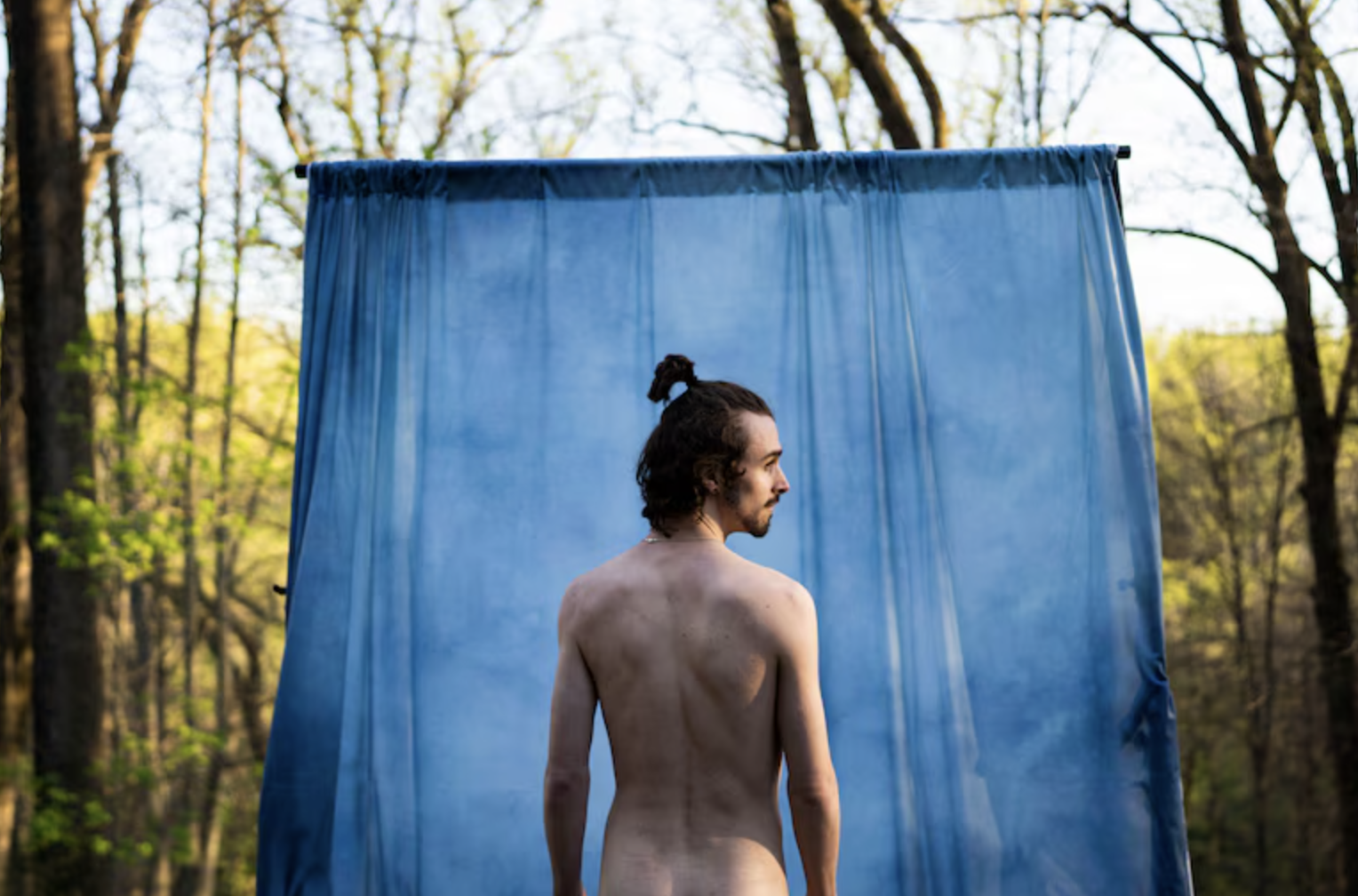
BY WESLEY CASE | Tavish Forsyth had come to a conclusion: They could not work for President Donald Trump.
So the 32-year-old Baltimore resident stripped down, turned on their camera, and lit their career on fire.
“F—— Donald Trump and f—— the Kennedy Center,” a naked Forsyth, an associate artistic lead at the Washington National Opera’s Opera Institute, which is run by the Kennedy Center, said in a video that went viral. The board of the nation’s leading cultural institution had elected Trump just weeks prior as its chairman after he gutted the board of members appointed by his predecessor, President Joe Biden.
The rest of this article can be read on the Baltimore Banner’s website.
District of Columbia
Little Gay Pub to host April 25 celebration of life for Patrick Shaw
School teacher, D.C. resident praised for ‘warmth, humor, kindness’
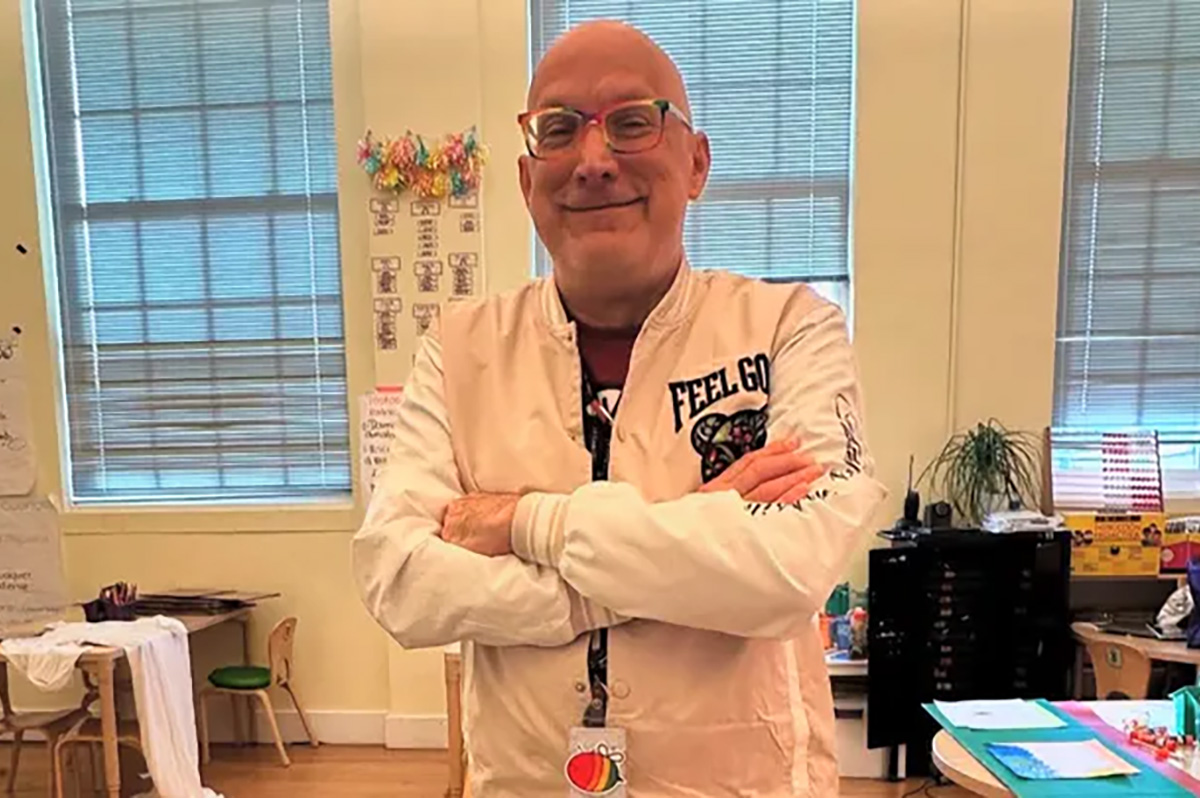
Co-workers and friends will hold a celebration of life for highly acclaimed schoolteacher and D.C. resident Patrick Shaw beginning at 5:30 p.m. Friday, April 25 at The Little Gay Pub 1100 P St., N.W.
Little Gay Pub co-owner and Shaw’s friend, Dusty Martinez, said Shaw passed away unexpectedly on April 19 from a heart related ailment at the age of 60.
“Patrick touched so many lives with his warmth, humor, kindness, and unmistakable spark,” Martinez said. “He was a truly special soul – funny, vibrant, sassy, and full of life and we are heartbroken by his loss.”
In an Instagram posting, Shaw’s colleagues said Shaw was a second-grade special education teacher at the J.F. Cook campus of D.C.’s Mundo Verde Bilingual Public Charter School.
“Patrick brought warmth, joy, and deep commitment to Mundo Verde,” his colleagues said in their posting. “His daily Broadway sing-alongs, vibrant outfits, and genuine love for his students filled our community with energy and laughter.”
The posted message adds, “Patrick was more than a teacher; he was a light in our school, inspiring us all to show up with heart, humor, and kindness every day. His spirit will be deeply missed.”
The Washington Blade is preparing a full obituary on Patrick Shaw to be published soon.
District of Columbia
D.C. police seek help in identifying suspect in anti-gay threats case
Victim threatened with assault, called ‘faggot’ as he left Capitals game
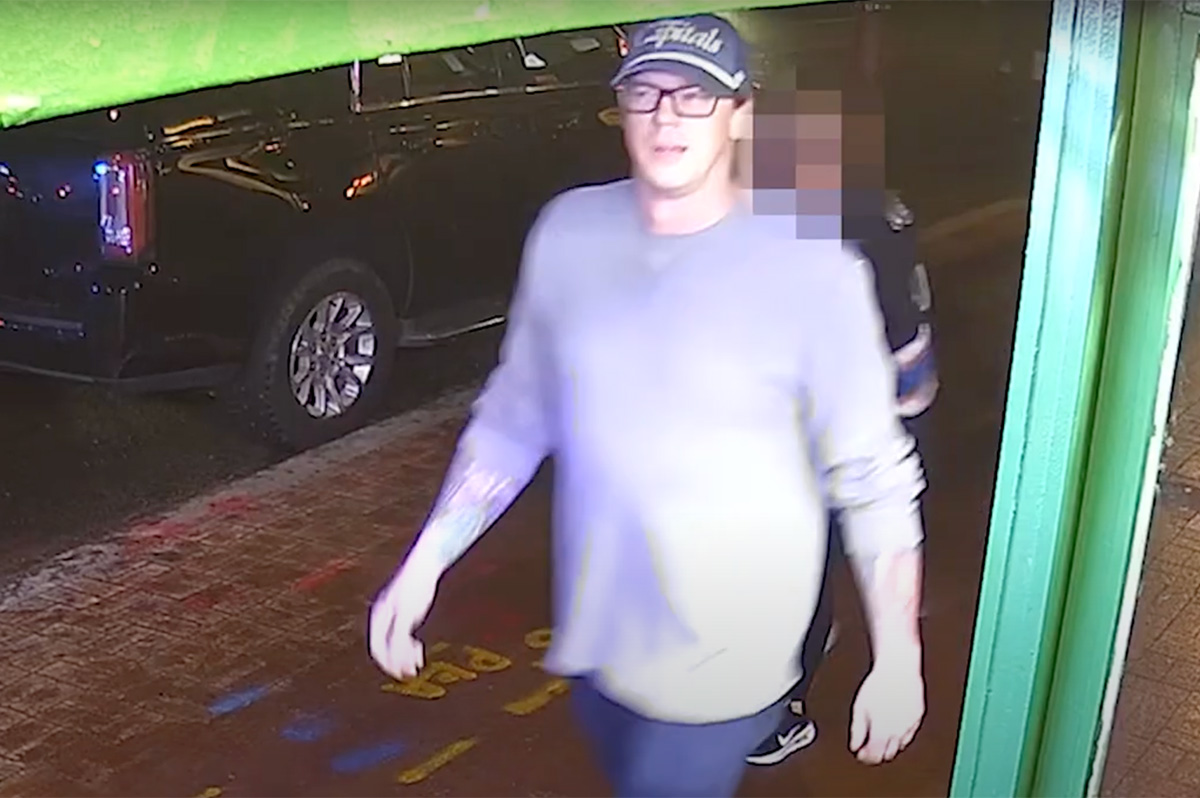
D.C. police are seeking help from the public in identifying a male suspect whose image was captured by a video surveillance camera after he allegedly shouted anti-gay slurs and threatened to assault a man at 6th and H Streets, N.W. on March 20 at about 9:54 p.m.
A police report says the victim told police the incident took place shortly after he exited the nearby Capital One Arena where he had attended a Washington Capitals hockey game.
The police report says the incident began when the victim saw the suspect yell a racist slur at a person behind the victim and started to berate a valet operator.
“Suspect 1 then turned his attention to Victim 1 and called him a ‘faggot’ among other homophobic slurs,” the report says. It says the victim then used his phone to record the suspect, prompting the suspect to walk away before returning and “snatching” the phone from the victim’s hand.
“Suspect 1 walked several feet as Victim 1 followed, requesting his phone back,” the report continues. “Suspect 1 stopped and turned to Victim 1 and while yelling other obscenities exclaimed ‘if you keep recording, I’m going to kick your ass.’” The report concludes by saying the victim was able to recover his phone.
It lists the incident as a “Threats To Do Bodily Harm” offense that is a suspected hate crime.
“Anyone who can identify this suspect or has knowledge of this incident should take no action but call police at 202-727-9099, or text your tip to the Department’s TEXT TIP LINE at 50411,” according to a separate police statement released April 23.
The statement says police currently offer an award of up to $1,000 to anyone who can provide information that leads to an arrest and indictment of the person or persons responsible for a crime committed in D.C.
D.C. police spokesperson Tom Lynch said the case has been under investigation since the incident occurred on March 20. He said the video image of the suspect, most likely obtained from a security camera from a nearby business, was released to the public as soon as it was obtained and processed through the investigation.
-

 Federal Government2 days ago
Federal Government2 days agoHHS to retire 988 crisis lifeline for LGBTQ youth
-

 Opinions2 days ago
Opinions2 days agoDavid Hogg’s arrogant, self-indulgent stunt
-

 District of Columbia2 days ago
District of Columbia2 days agoD.C. police seek help in identifying suspect in anti-gay threats case
-

 Opinions2 days ago
Opinions2 days agoOn Pope Francis, Opus Dei and ongoing religious intolerance



